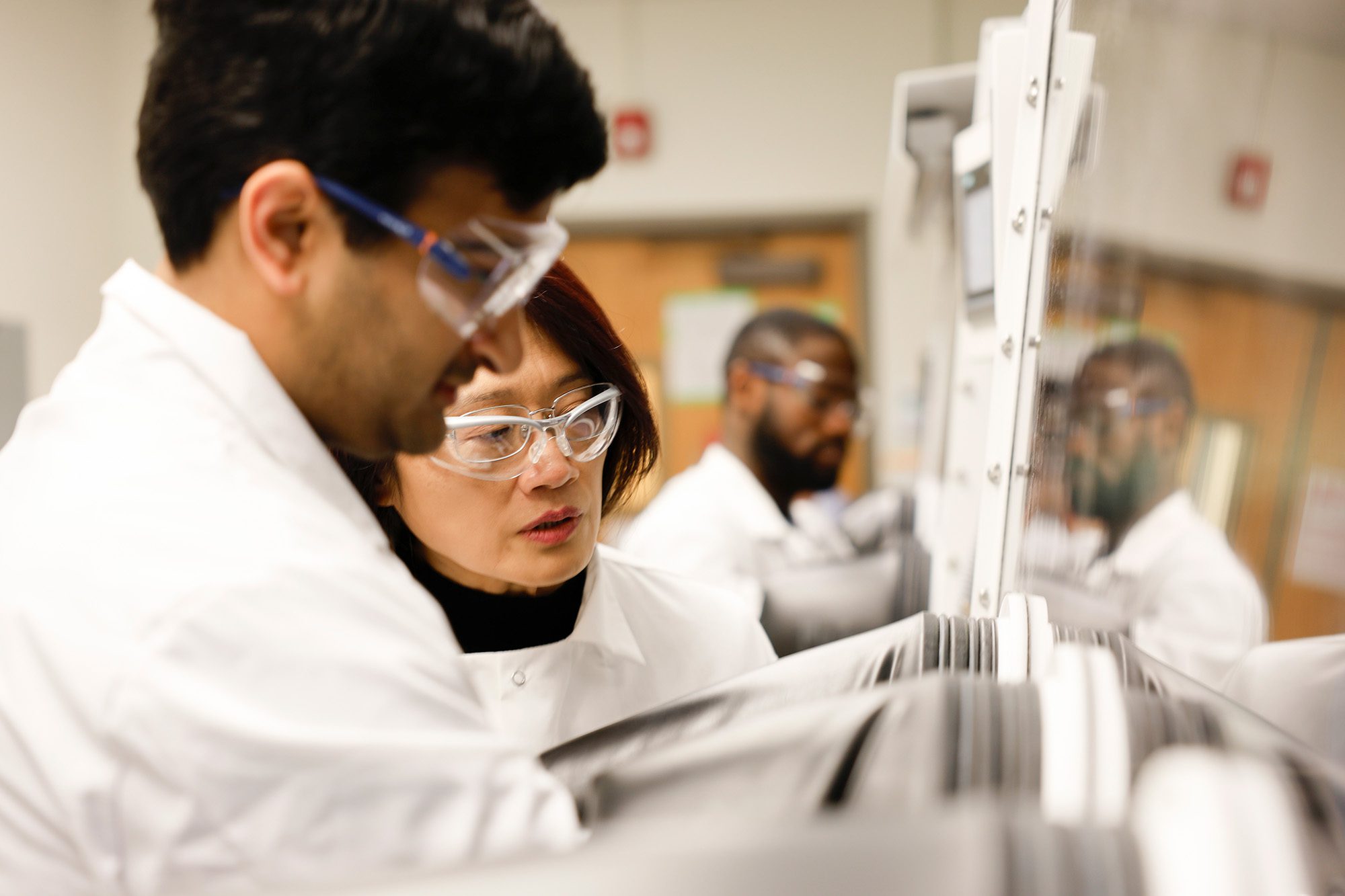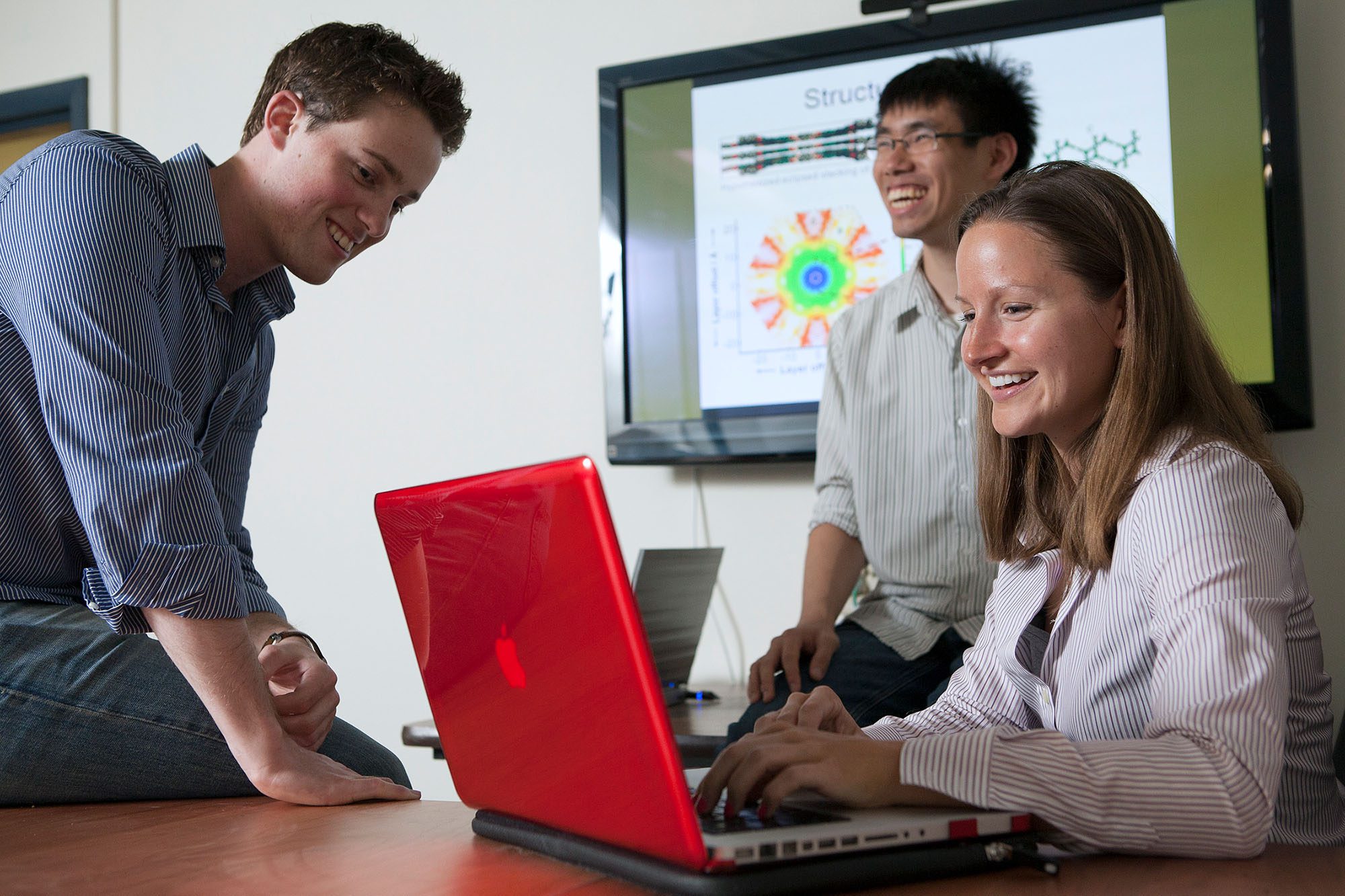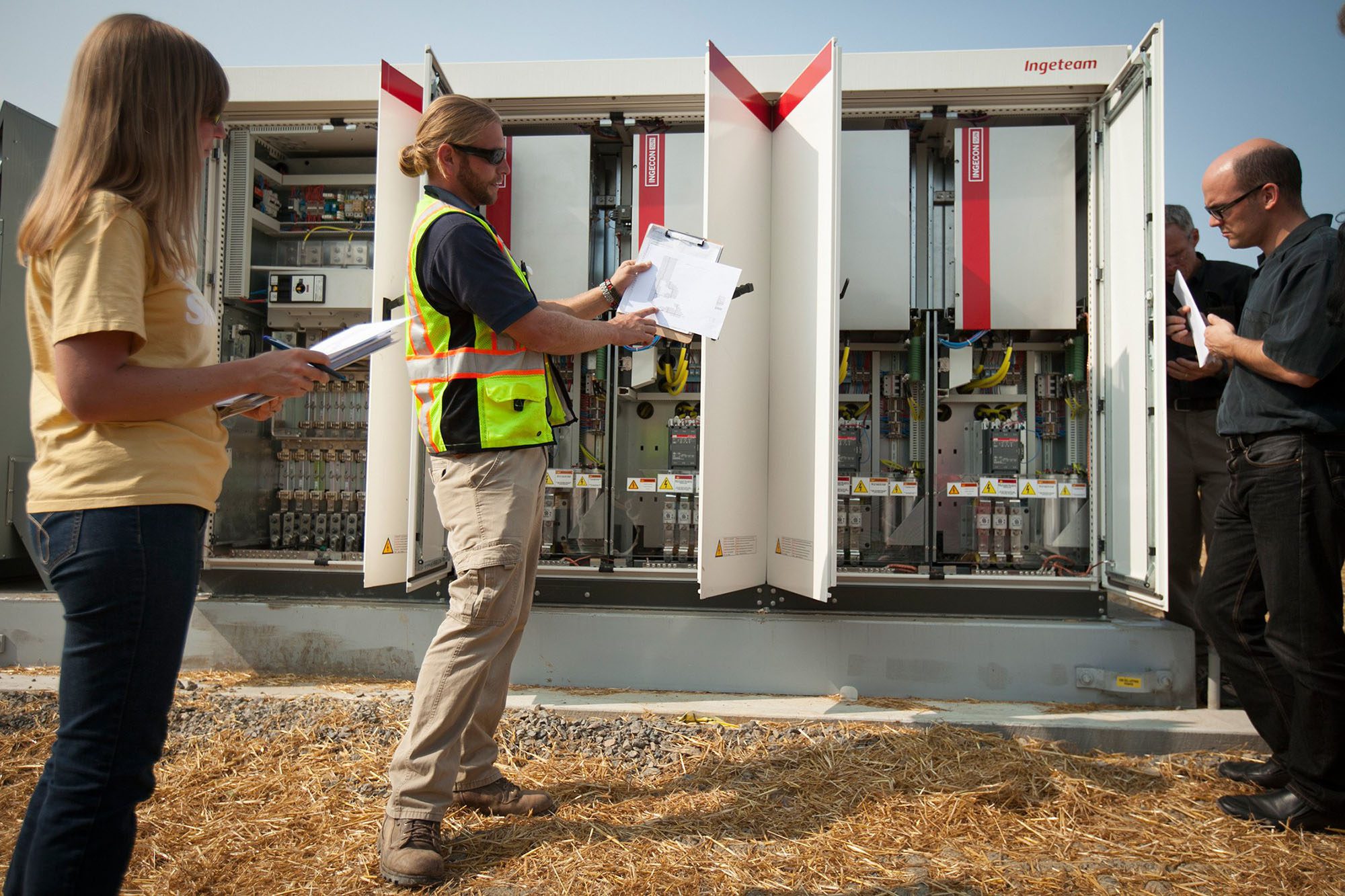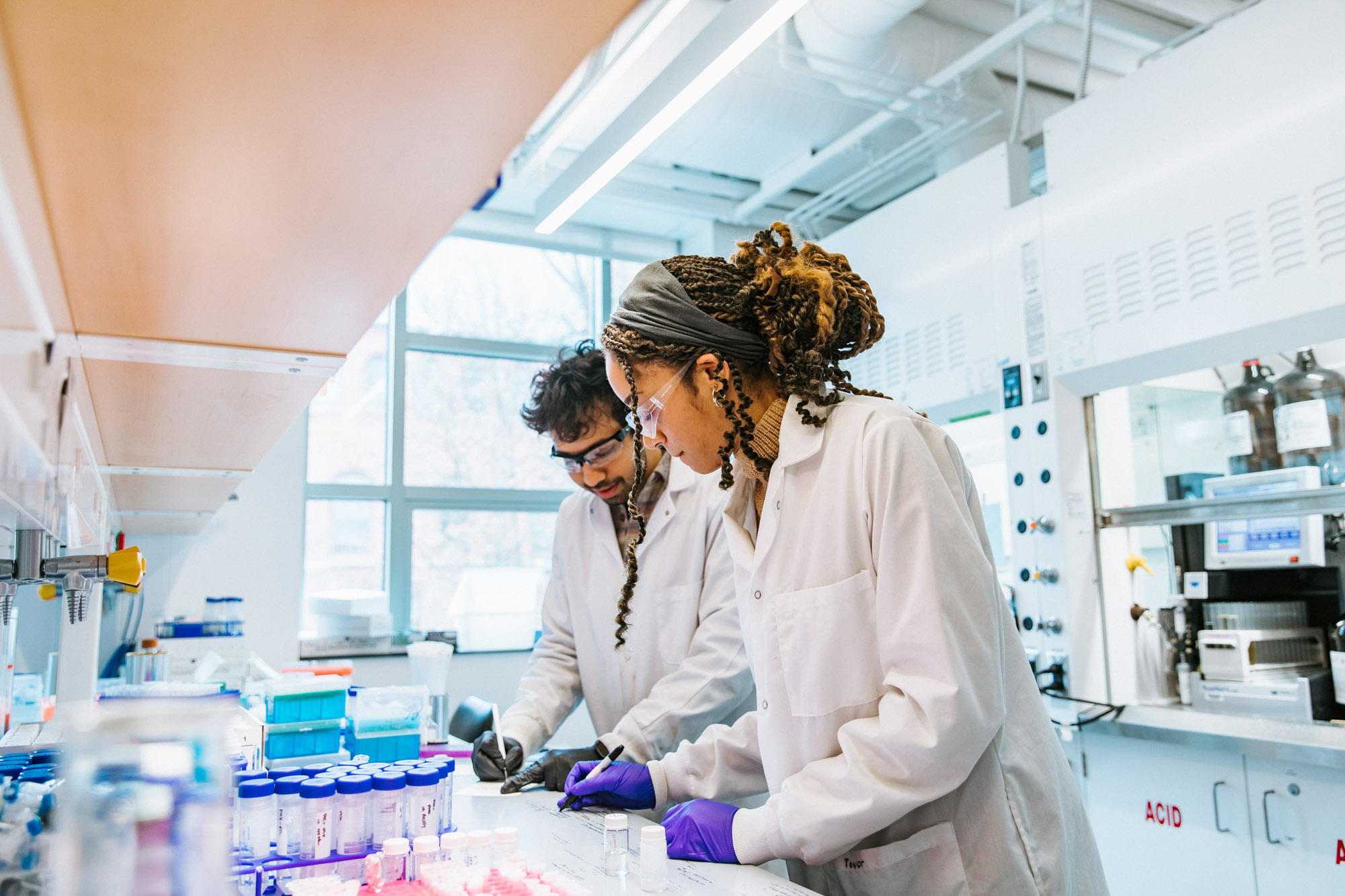Our immersive and flexible one-year program is designed to prepare students to be innovators and leaders in industry.
-
![Student Rebecca Cantrell working through a problem set on a white board.]()
Fundamentals
A series of immersive cohort-based coursework over two semesters builds a solid basis for Data Science and Artificial Intelligence (DS/AI), process modeling, innovation, entrepreneurship, and leadership.
In lieu of a final thesis, M.Eng. students complete a real-world team project using research, financial analysis, and feasibility-driven management skills. Projects are completed in partnership with world-renowned faculty, policymakers, corporations, start-ups, and governmental organizations to develop solutions to current challenges.
-
![Qiuming Yu and a research student in the Yu Research Lab in Olin Hall fume hood.]()
Focus
Design your program of study in one or more focus areas:
-
![MEng students work around laptop in a group.]()
Free
Our program is more than just technical instruction. Sure, there are specialized courses. However, societal problems are rich and multifaceted. Technology is only part of the formula to change the world.
Students have flexibility in selecting their electives from anywhere on campus to give them the tools and perspectives they need to make a positive impact. Our program fully embraces the “…any person … any study” ethos that makes Cornell a special place.
Focus Areas
Choose a focus area that aligns with your interests.
“The curriculum offers both breadth and flexibility. It enabled me to pursue my interests across a variety of disciplines, both within and outside of chemical and biomolecular engineering. Also, the support and mentorship I received from the faculty were invaluable. Professors have provided guidance in and out of the classroom, helping me make key decisions about the next steps in my career.”
Leah Zhao M.Eng. ‘24
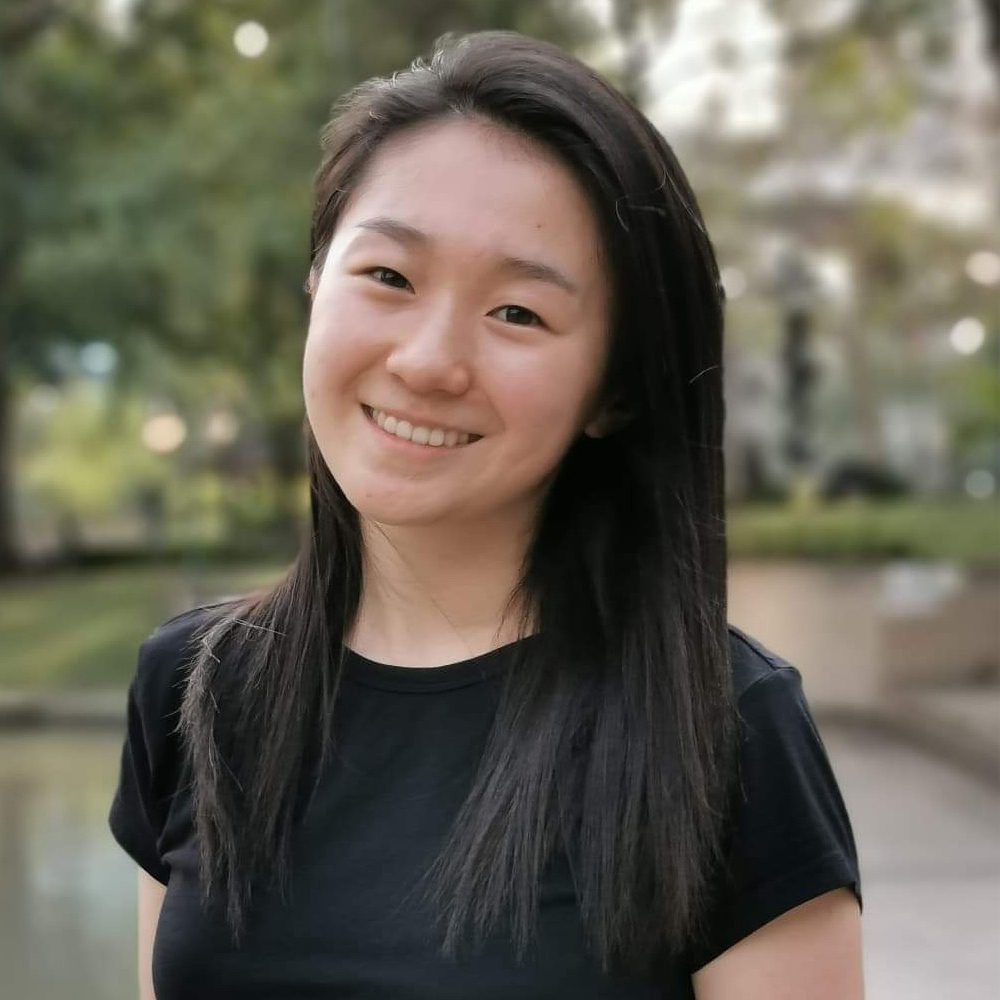
Find Out More
Featured Employers
- Air Products and Chemicals
- Amazon
- Arcadis
- AstraZeneca
- Bristol Myers Squibb
- Codexis
- ConocoPhillips
- Corning Inc.
- Deloitte
- Exxon Mobil
- General Electric
- General Mills
- Genentech
- Global Foundries
- GTE Products Corporation
- IBM
- Infineum
- Intel
- Kraft Foods
- Merck
- Micron
- Motorola
- NOHMs
- PepsiCo
- Procter and Gamble
- Regeneron
- Technologies PowerAdvocate
- Tesla
- Samsung
- Saudi Aramco
- Schlumberger
- Veolia
- Wood Mackenzie
Job Title Examples
- Applications Engineer
- Battery Engineer
- Chemical Process Engineer
- Data and AI Technical Specialist
- Development Engineer
- Director of Engineer Standards and Compliance
- Energy Analyst
- Failure Analysis Engineer
- Food Safety and Quality Associate
- Innovation Operations and Strategy Manager
- Machine Learning Engineer
- Manufacturing Engineer
- Materials Development Engineer
- Petroleum Engineer
- Plant Contact Engineer
- Process Automation Engineer
- Process Technology Leader
- Process Engineer
- Quality Control Analyst
- Renewable Development Analyst
- Senior Associate Scientist
- Senior Technical Project Manager
- Software Engineer
- Strategy and Management Consultant
M.Eng. Program Contacts
-
M.Eng Program Coordinator
Kristina Rose
Olin Hall, Room 168
cbe-meng@cornell.edu -
Upcoming Info Sessions
April 24th at 6:00 PM EST. – Register
Unable to attend an info session?
- Schedule a 30-minute consult (ask questions, learn more about the M.Eng. Program)
- Email the M.Eng. Program Coordinator, cbe-meng@cornell.edu


